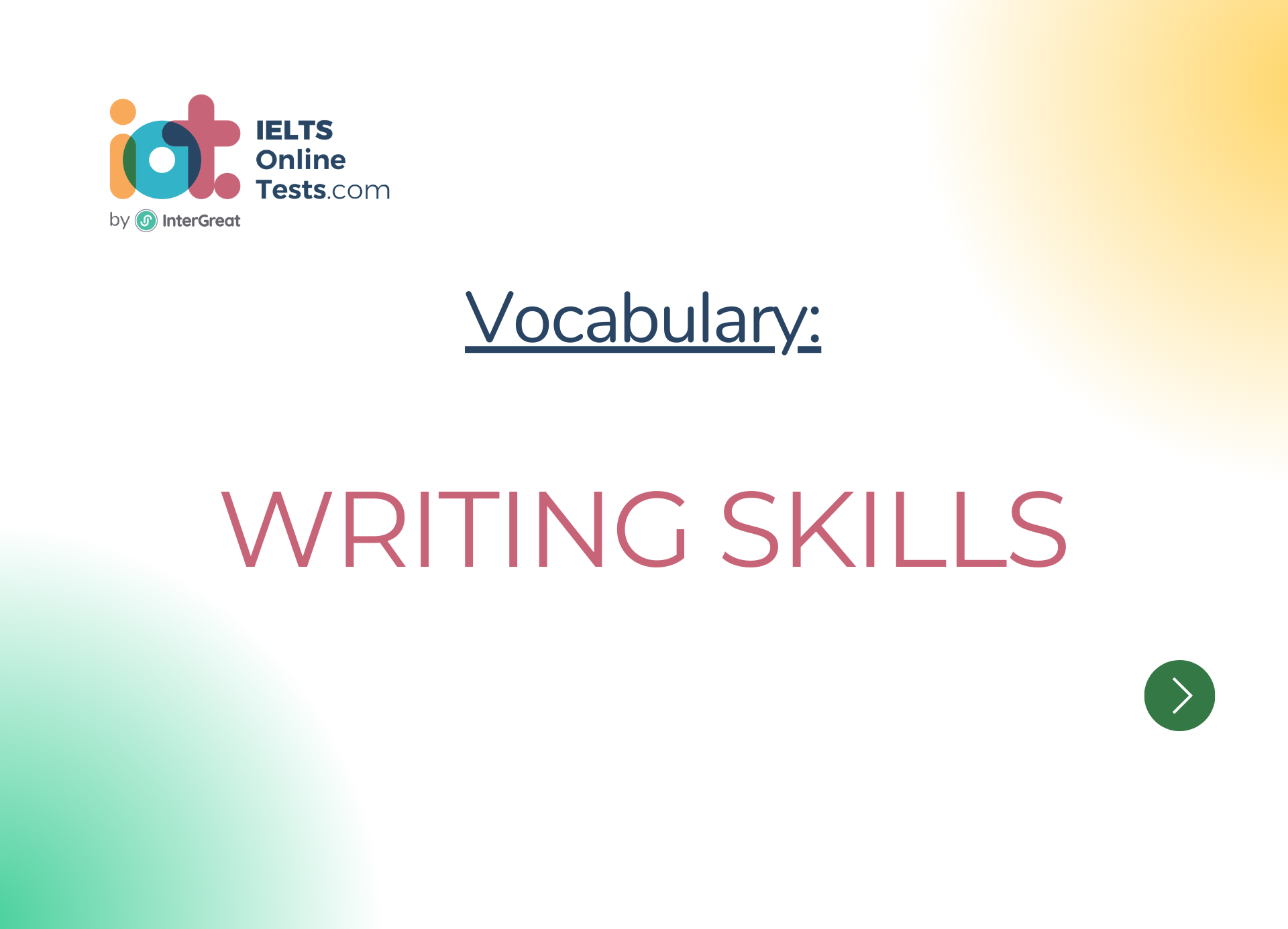
Writing skills
Here are some vocabulary words related to writing skills for the IELTS band score range of 4.5-6.0:
Coherent
Logical and well-organized, making it easy for the reader to follow the ideas.
Cohesive
Unified and connected, with smooth transitions between sentences and paragraphs.
Structure
The overall organization and arrangement of the writing, including introduction, body, and conclusion.
Clarity
Clear and easily understandable, without ambiguity or confusion.
Concise
Using as few words as possible to convey ideas without sacrificing clarity.
Grammar
The rules governing the structure of sentences and phrases in a language.
Punctuation
The use of symbols (e.g., commas, periods) to clarify the meaning and structure of sentences.
Vocabulary
The range of words used in writing to express ideas effectively.
Fluency
Smooth and effortless flow of ideas and sentences in writing.
Tone
The attitude or emotion conveyed in writing, such as formal, informal, serious, or humorous.
Formal Language
Language that is appropriate for academic or professional writing.
Informal Language
Language that is suitable for casual or conversational writing.
Persuasive Writing
Writing that aims to convince the reader to accept a particular point of view or take specific action.
Descriptive Writing
Writing that vividly portrays a person, place, object, or experience.
Narrative Writing
Writing that tells a story or recounts events in a chronological order.
Analytical Writing
Writing that examines and evaluates a topic by breaking it down into its components.
Citation
Giving credit to the original sources of information used in writing.
Paraphrasing
Restating someone else's ideas in one's own words while maintaining the original meaning.
Synonyms
Words that have similar meanings.
Antonyms
Words that have opposite meanings.
Proofreading
Checking and correcting errors in writing, such as spelling, grammar, and punctuation mistakes.
Editing
Reviewing and revising the content and structure of the writing for clarity and coherence.
Redundancy
Unnecessary repetition of words or ideas in writing.
Connotation
The implied or suggested meaning of a word, beyond its literal definition.
Rhetorical Devices
Techniques used to enhance the effectiveness and impact of writing, such as metaphors, similes, and rhetorical questions.
Thesis Statement
A clear and concise statement that presents the main idea or argument of an essay.
Topic Sentence
The first sentence of a paragraph that introduces the main idea of that paragraph.
Argument
A claim or assertion supported by evidence in an essay or writing piece.
Evidence
Facts, examples, or data that support the argument or claim in writing.
Counterargument
An opposing viewpoint or argument that is addressed and refuted in the writing.
Conclusion
The final paragraph or section of an essay that summarizes the main points and provides a closing thought.
Introduction
The opening paragraph of an essay that introduces the topic and presents the thesis statement.
Revision
The process of rethinking and reworking the content and structure of writing.
Brainstorming
Generating ideas and possible topics for writing through free thinking and creativity.
Outline
A plan or framework that organizes the main ideas and supporting details before writing.
Paragraph Development
Structuring paragraphs with topic sentences, supporting details, and concluding sentences.
Formal Register
Using language that is appropriate for academic or professional writing.
Informal Register
Using language that is suitable for casual or everyday writing.
Remember to practice using these vocabulary words while developing your writing skills. Building a strong vocabulary and improving your writing will help you achieve a higher band score on the IELTS exam. Good luck with your studies!




